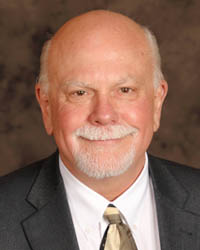

Empowering Older Adults at the Doctor’s Office
The health care system can be difficult to understand for people of all ages. But as we age, navigating the system’s complexities can become more challenging. Older adults often face unique health concerns that require vigilant and proactive management. One of the best ways to ensure that older adults receive the care they need is through effective patient advocacy at medical appointments.
We all need to take an active role in our own health care. But some factors make it more difficult for older adults to be proactive at the doctor’s office. First, studies have shown that older adults are less likely to ask for a referral to a specialist. And a recent panel at UConn Center on Aging identified more factors that may affect a senior person’s ability to get the care or medications they need, including having a complex medical history, taking multiple medications, and the possibility of cognitive decline. When you consider those factors along with the fact that 80% of misdiagnoses occur during the initial information-gathering session between patients and providers, it’s no wonder that older adults can feel underserved by their experiences in healthcare.
The role of in-home care in health advocacy
In-home care is not just about assisting with daily activities; it’s also about supporting older adults in maintaining their health and well-being. Caregivers can be invaluable allies in helping clients prepare for and follow through with their medical appointments. Here’s how:
1. Helping clients remember important topics:
One of the most significant challenges older adults face is remembering all the health concerns and questions they need to address during a doctor’s visit. Caregivers can assist by keeping a log of symptoms, medications, medication side effects, and any other health-related issues that arise between appointments. This log can serve as a valuable reference during the visit, ensuring nothing important is overlooked.
2. Encouraging comprehensive health discussions:
Caregivers can encourage their clients to bring up all aspects of their health, including mental health, mobility issues, and lifestyle changes. They can remind clients to ask questions like:
“Are there any new treatments or medications that could help my condition?”
“What are the potential side effects of my current medications?”
“Are there any lifestyle changes that could improve my health?”
“How can I manage my symptoms better?”
3. Attending appointments:
When possible, and with the senior’s permission, caregivers can accompany clients to their medical appointments. Their presence can provide emotional support and help ensure that the client’s concerns are fully communicated. Caregivers can also take notes during the appointment, helping the client remember the doctor’s advice and instructions later.
4. Alerting clients to potential health issues:
Caregivers are often the first to notice subtle changes in their clients’ health. For example, they might notice more difficulty in mobility, changes in appetite, or unusual fatigue. By reporting these observations to the client and encouraging them to discuss them with their doctor, caregivers can play an important role in early detection and intervention.
Juggling all the details of in-home care
It happens to the best of us! Managing health can be overwhelming, especially when juggling multiple medications or conditions. That's why keeping an updated list of medications and notes about symptoms is so important for ensuring the best care.
A human tendency is to talk about our good days and not let our doctor know what it's really like on our bad days, especially our senior loved ones. They often don’t want family members to worry or know what they’re feeling. They might have aches, pains, and symptoms they’ve been living with for a while and now think are just a normal part of life, or they believe they overdid it and are paying for it now.
Make sure to discuss the ups and downs of your week and provide details on those aches and pains that can come and go. It’s important to provide a complete picture of your health.
At Right at Home Northwest Oklahoma City, we understand the importance of clear communication between you and your healthcare providers. Our caregivers can help keep track of medications and assist with health updates, so nothing slips through the cracks.
The positive impact of in-home care
In-home care can significantly enhance the ability of older adults to advocate for their health needs. This partnership between caregivers and clients fosters better health outcomes and a higher quality of life.
Right at Home is dedicated to empowering our clients to take charge of their health. Our caregivers are trained to support clients in all aspects of their health journey, ensuring they receive the best possible care and advocacy. If you or a loved one could benefit from our services, please don’t hesitate to contact us.
Let’s make your health a priority – together!




